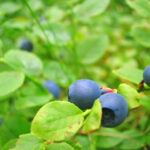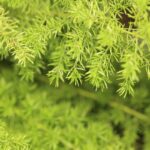Words ending in KKO or KKÖ – Finnish derivation
Finnish has a fairly large group of words ending in KKO or KKÖ. They can be derived from verbs, adjectives or nouns. Noun-based words are the most common.
The most common meaning for these words is a collective: they refer to a group of things as one entity. For example, the word aallokko refers to a collection of waves (a “surf” or “swell” in English) and is derived from the noun aalto “wave”.
To guide beginner or intermediate learners, I’ve marked the easiest and most common words in green in the tables below. Start by learning these!
1. Words with a collective meaning
The words in this section have a collective meaning, ie. they describe an entity that consists of multiple of the base word.
To demonstrate the neatness of this system, let me first introduce a couple of such words:
- Naulakko means “coatrack”. It’s based on the word naula “nail”. One coat can be hung on a nail (or a hook), but if you have multiple nails, you get a naulakko. This word refers both to the horizontal type of coatrack with hooks in a row and the coatstand.
- Pensaikko refers to a thicket of bushes. It’s based on the word pensas “bush”. If there are many bushes close to one another in an area, you get a pensaikko.
- Portaikko means “stairway” or “staircase”. It’s based on the word porras which means one step on stairs. The plural form portaat is used when you mean all the stairs, while portaikko refers to the multiple stairs forming a staircase.
- Männikkö means a small forest (a grove) populated with pines, from the noun mänty “pine tree”. This model can be used for other tree types as well: koivikko for a forest of birch trees (koivu), katajikko for a forest of juniper trees (kataja), etc.
1.1. Collective nouns related to nature
Key words for this section: “made of”, “containing”.
The following collective nouns all have a noun as their base. Words marked with #1 all refer to areas with a certain type of trees, such as kuusikko for a forest with predominantly spruces and pajukko for a place where mainly willows grow.
Words marked with #2 refer to an area or place that has a certain type of plants or other vegetation, such as kaislikko for an area with many reeds and taimikko for a place where there are lots of new saplings growing. Words marked with #3 are other miscellaneous nature-related collective words.
| # | -kko | Translation | Base word |
|---|---|---|---|
| 1 | metsikkö | small forest, grove | from metsä “forest” |
| 1 | kuusikko | spruce forest | from kuusi “spruce, fir” |
| 1 | koivikko | birch forest | from koivu “birch tree” |
| 1 | männikkö | pine forest | from mänty “pine tree” |
| 1 | hongikko | pine forest | from honka “tall handsome pine tree” |
| 1 | katajikko | juniper forest | from kataja “juniper” |
| 1 | haavikko | aspen forest | from haapa “aspen tree” |
| 1 | pajukko | willow forest | from paju “willow” |
| 1 | lepikkö | alder wood | from leppä “alder tree” |
| 1 | kannokko | area with many tree stumps | from kanto “tree stump” |
| 1 | viidakko | jungle | from viita (dense forest of deciduous trees) |
| 2 | heinikko | meadow | from heinä “hay” |
| 2 | karikko | range of rocks | from kari “rock near/in water” |
| 2 | ruohikko | grass field, lawn | from ruoho “grass” |
| 2 | nurmikko | maintained lawn | from nurmi “lawn” |
| 2 | pensaikko | thicket of bushes | from pensas “bush” |
| 2 | kaislikko | bed of reeds, rushes | from kaisla “reed, bulrush” (near water) |
| 2 | ruoikko | bed of reeds, reed banks | from ruoko “reed” (often hollow stem) |
| 2 | risukko | brushwood, thicket | from risu “twig” |
| 2 | vesakko | coppice (many sprouts) | from vesa “sprout, sprig” |
| 2 | juurakko | network of roots, rootstock | from juuri “root” |
| 2 | taimikko | group of saplings | from taimi “sapling, young tree/plant” |
| 2 | sammalikko | moss-covered area | from sammal “moss” |
| 2 | vatukko | raspberry thicket | from vattu “raspberry” |
| 2 | kortteikko | area where horsetail grows | from korte “horsetail” (plant: link) |
| 2 | kanervikko | heathland, area of heather | from kanerva “heather” (plant: link) |
| 3 | aallokko | swell, surf | from aalto “wave” |
| 3 | rannikko | coast, shore | from ranta “beach” |
| 3 | jäätikkö | glacier, ice sheet | from jää “ice” |
| 3 | valjakko | animals pulling something | from valjaat “harness, rein” |
| 3 | ratsukko | horse and its rider | from ratsu “steed, mount” |
| 3 | koirakko | dog and its trainer | from koira “dog” |
2. KKO words that refer to a single object or person
2.1. KKO words that refer to a singular person
Most of the words ending in KKO that refer to a person are created from a loanword. For example, the word teknikko is clearly related to the English “technician”. For these words, it can be a little unclear what the base word is: does teknikko come from the adjective tekninen “technical”, for example, or has it been derived from the noun tekniikka “technology”. While this is interesting to ponder, you get the gist even without knowing the exact etymology.
| -kko | Translation | Base word |
|---|---|---|
| koomikko | comedian | from koominen “comical” |
| kyynikko | cynic | from kyyninen “cynical” |
| neurootikko | neurotic person | from neuroottinen “neurotic” |
| maallikko | layman | from maallinen “earthly” |
| skeptikko | sceptic | from skeptinen “skeptical” |
| eksentrikko | eccentric person | from eksentrinen “eccentric” |
| allergikko | allergic person | from allerginen “allergic” |
| poleemikko | polemic person | from poleeminen “polemic” |
| teknikko | technician | from tekninen “technical” |
| teoreetikko | theorist | from teoreettinen “theoretical” |
| agnostikko | agnostic person | from agnostinen “agnostic” |
| atleetikko | athlete | from atleettinen “athletic” |
| satiirikko | satirist | from satiirinen “satirical” |
| hupakko | scatterbrained person | from hupsu “silly” (uncertain etymology) |
| uskalikko | daredevil | from uskalias “daring” |
| älykkö | intellectual | from älykäs “intelligent” |
| anorektikko | anorexic person | from anoreksia “anorexia” |
| buliimikko | bulimic person | from bulimia “bulimia” |
| afaatikko | aphasic person | from afasia “aphasia” |
| dementikko | demented person | from dementia “dementia” |
| diabeetikko | diabetic person | from diabetes “diabetes” |
| maanikko | manic person, maniac | from mania “mania” |
| astmaatikko | asthmatic person | from astma “asthma” |
| akateemikko | academic person | from akatemia “academy” |
| muusikko | musician | from musiikki “music” |
| karjakko | milkmaid, dairymaid | from karja “cattle” |
| tosikko | a humorless person | from tosi “real” |
| häirikkö | lout, troublemaker | from häiritä “to disturb, bother” |
| villikko | mischief-maker | from villi “wild” |
| ummikko | monolingual person | from umpi “closed on one end, internal” |
| nuorikko | young bride | from nuori “young” (see also below) |
There is a large portion of KKO words describing a person that have a noun connected to them that ends in KKA (e.g. matematiikka “mathematics” vs. matemaatikko “mathematician”). I have a separate article about those here.
2.2. KKO words that refer to a singular nature thing
Earlier in this article, I listed nature words that refer to an entity consisting of many individual parts, such as koivikko for a forest consisting of many birch trees. In addition to those collective nouns, there are also fairly many KKO words that refer to a single animal (#1) or plant (#2).
| # | -kko | Translation | Base word |
|---|---|---|---|
| 1 | nuorikko | young chicken | from nuori “young” (see also above) |
| 1 | rusakko | brown hare | from ruskea “brown” |
| 1 | emakko | sow (female pig) | from emä “(animal) mother” |
| 1 | liinakko | chestnut horse | from liina (the markings resemble stripes of cloth) |
| 1 | lumikko | weasel | from lumi “snow” |
| 1 | vesikko | mink | from vesi “water” |
| 1 | untuvikko | nestling | from untuva “fluff feathers” |
| 1 | haavakko | wounded animal | from haava “wound” (a term hunters use) |
| 2 | esikko | primula (link) | from esi “pre-, fore-” (they flower early in spring) |
| 2 | illakko | dame’s rocket (link) | from ilta “evening” (they smell stronger in the evening) |
| 2 | punakko | velvetbells (link) | from punainen “red” (but they’re mostly purple) |
| 2 | tervakko | campion (link) | from terva “tar” (they excrete a tar-like substance) |
| 2 | haarikko | pearlwort (link) | from haara “branch, fork” |
| 2 | unikko | poppy | from uni “sleep” (because of its effects when eaten) |
| 2 | limakko | plasmodium (link) | from lima “slime” (also called “slime mold”) |
| 2 | solukko | tissue (biology) | from solu “cell” |
2.3. Other KKO words based on nouns
The following words are also very useful but didn’t fit in the previous sections.
| -kko | Translation | Base word |
|---|---|---|
| naulakko | coat rack | from naula “nail” |
| hyllykkö | shelving, shelf unit | from hylly “self” |
| lokerikko | organizer cabinet | from lokero “compartment” |
| sokerikko | sugar bowl | from sokeri “sugar” |
| kermakko | creamer (jug) | from kerma “cream” |
| liivakko | gelatin leaf (= liivatelehti) | from liivate “gelatin” |
| mausteikko | cruet, condiment stand | from mauste “spice” |
| rullakko | trolley (wheeled) | from rulla “roll, roller” |
| portaikko | staircase, stairway | from porras “step, stair” |
| luodikko | hunting rifle | from luoti “bullet” |
| haulikko | shotgun, shattergun | from hauli “pellet, buckshot” |
| jouhikko | Finnish lyre (link) | from jouhi “horsehair” (the material of the strings) |
| silmikko | visor (of helmet) | from silmä “eye” (it goes before your eyes) |
| maljakko | vase | from malja “bowl” |
| lasikko | vitrine, display case | from lasi “glass” (panes made of glass) |
| klassikko | a classic (e.g. book, film) | from klassinen “classical” |
| kapeikko | strait, narrow place | from kapea “narrow” |
| pehmeikkö | soft section in terrain | from pehmeä “soft” |
| ylläkkö | raid, surprise attack | from yllätys “surprise” or yllättää “to surprise” |
| säleikkö | lattice, trellis | from säle “slat, strip” |
| ristikko | grid, grill / crossword puzzle | from risti “cross” |
| ruudukko | grid, crisscross | from ruutu “square” |
| kehikko | framework | from kehä “circumference” |
| varikko | depot, paddock | from vara “spare, reserve” |
| pylväikkö | row of pillars, colonnade | from pylväs “column, pillar” |
| asteikko | scale (displaying degrees) | from aste “degree” |
| koneikko | unit of connected machines | from kone “machine” |
| tadikko | pitchfork | from tade “muck, manure” (old word) |
| talikko | pitchfork (see above) | from tade (d gets replaced with l in some dialects) |
3. Nouns based on adjectives / numbers / adverbs / verbs
Some collective nouns are based on an adjective. These generally refer to a natural place or an area that has the quality of the adjective. You can find some other miscellaneous words below as well.
| -kko | Translation | Base word |
|---|---|---|
| aavikko | desert (lots of space) | from aava “open, wide” |
| karheikko | rough (unmown part of golf course) | from karhea “rough” |
| tiheikkö | thicket (place with dense bushes/trees) | from tiheä “thick / dense” |
| matalikko | shallow body of water (e.g. sandbank) | from matala “low” |
| kosteikko | wetland (marshy, soggy area) | from kostea “damp, moist” |
| karukko | barren area | from karu “barren, bleak” |
| monikko | plural | from moni “many” |
| yksikkö | singular, unit | from yksi “one” |
| kaksikko | duo, pair | from kaksi “two” |
| kolmikko | trio, threesome | from kolme “three” |
| nelikko | quartet, foursome | from neljä “four” |
| viisikko | quintet, fivesome | from viisi “five” |
| valikko | menu (e.g. drop down) | from valita “to choose” |
| häirikkö | troublemaker | from häiritä “to disturb, to bother” |
| kolikko | coin | from kolista “to clatter” |
| rynnäkkö | ground attack, charge | from rynnätä “to rush, to bolt” |
4. Diminutive words
Some words ending in KKO can be seen as diminutive derivatives: they express the “smallness” of the base word.
| -kko | Translation | Base word |
|---|---|---|
| lammikko | puddle | from lampi “pond” |
| puistikko | small park | from puisto “park” |
| kepakko | thin, long stick | from keppi “stick” |
4. Uncertain etymology
The following words have either an unclear etymologic background, or their meaning has diverged from the base word. Many of these words are very common and useful to learn.
| Base word | Derivate | Derivate |
|---|---|---|
| otsikko | headline / title | from otsa “forehead” |
| päällikkö | chief / commander | from päällinen “covering” |
| ennakko | prepayment | from ensi “first” |
| kesakko | freckle | from kesä “summer” |
| välikkö | corridor / passage | from väli “gap” |
| lävikkö | colander | from läpi “through” (water goes through) |
| sammakko |
frog | unclear |
| ullakko | attic | unclear |
| lompakko | wallet | from Swedish plånbok |
| kolpakko | tankard | from Russian колпак |
| lepakko | bat | maybe from lepattaa “to flutter” |
| lätäkkö | puddle | maybe from lätsähtää “to splat, slosh” |
| laatikko | box | maybe from ancient Swedish ladikka/laadikka, from Islandic hlatha or ancient German latta |
5. Inflection and Consonant Gradation
Words ending in KKO of course inflect in all the cases.
| Noun case | Singular -kko | Plural -kko | Singular -kkö | Plural -kkö |
|---|---|---|---|---|
| Nominative | naulakko | naulakot | päällikkö | päälliköt |
| Partitive | naulakkoa | naulakkoja | päällikköä | päällikköjä |
| Genitive | naulakon | naulakkojen | päällikön | päällikköjen |
| Inessive | naulakossa | naulakoissa | päällikössä | päälliköissä |
| Elative | naulakosta | naulakoista | päälliköstä | päälliköistä |
| Illative | naulakkoon | naulakkoihin | päällikköön | päällikköihin |
| Adessive | naulakolla | naulakoilla | päälliköllä | päälliköillä |
| Ablative | naulakolta | naulakoilta | päälliköltä | päälliköiltä |
| Allative | naulakolle | naulakoille | päällikölle | päälliköille |
| Essive | naulakkona | naulakkoina | päällikkönä | päällikköinä |
| Translative | naulakoksi | naulakoiksi | päälliköksi | päälliköiksi |
| Abessive | naulakotta | naulakoitta | päälliköttä | päälliköittä |
The table above contains only one ending for the plural partitive (naulakkoja, päällikköjä) and one ending for the plural genitive (naulakkojen, päällikköjen). However, these words can have a second marker as well: naulakoita and päälliköitä for the partitive plural and naulakoiden ja päälliköiden for the genitive plural. Depending on the word, one of these endings can be more common, but both are possible. Read more about these here.





This is very informative. Any reason why a noun would get a -KKO/KKÖ ending vs. -STO/STÖ? They seem to have the same function.
That’s a really good question! A general tendency is that -kko is used for more concrete words and -sto for more abstract words, but that’s pretty hard to pin down exactly. It’s pretty hard for a learner of Finnish to use this general tendency as a guideline for predicting whether -sto or -kko will be used.
From an etymologic perspective, we can say that -sto used to be productive mainly in Western Finnish dialects, while -kko was more common in Eastern Finnish dialects.